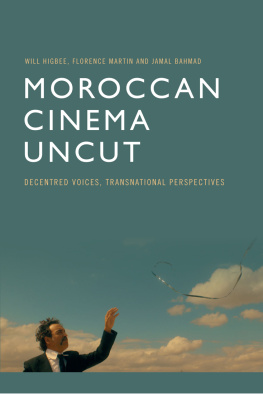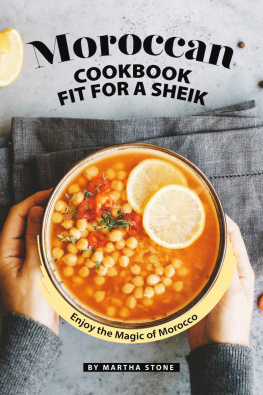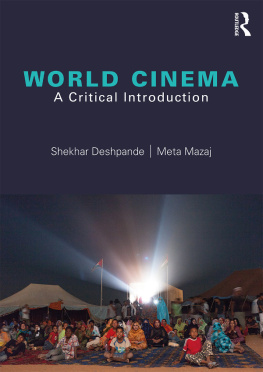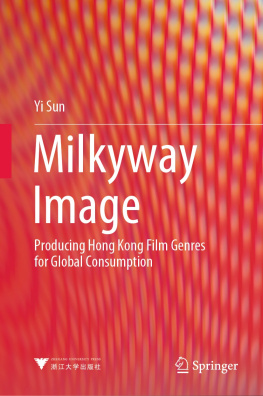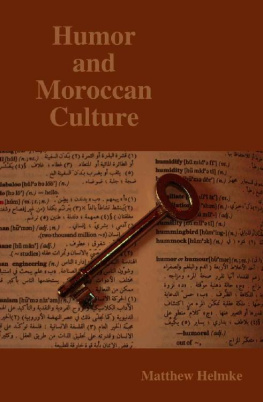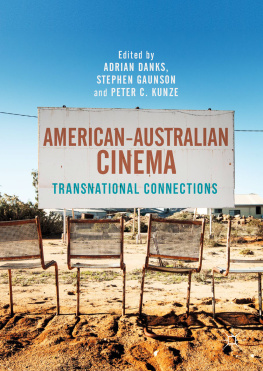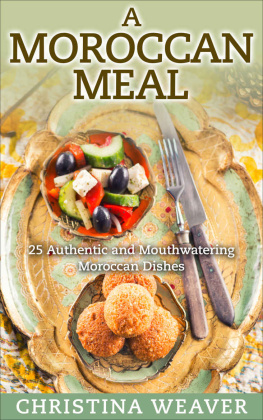
MOROCCAN CINEMA UNCUT
MOROCCAN CINEMA UNCUT
Decentred Voices, Transnational Perspectives
Will Higbee, Florence Martin and
Jamal Bahmad
EDINBURGH
University Press
Edinburgh University Press is one of the leading university presses in the UK. We publish academic books and journals in our selected subject areas across the humanities and social sciences, combining cutting-edge scholarship with high editorial and production values to produce academic works of lasting importance. For more information visit our website: edinburghuniversitypress.com
Will Higbee, Florence Martin and Jamal Bahmad, 2020
Edinburgh University Press Ltd
The Tun Holyrood Road
12(2f) Jacksons Entry
Edinburgh EH8 8PJ
Typeset in 10/12.5 pt Sabon
by IDSUK (DataConnection) Ltd, and
printed and bound in Great Britain
A CIP record for this book is available from the British Library
ISBN 978 1 4744 7793 2 (hardback)
ISBN 978 1 4744 7795 6 (webready PDF)
ISBN 978 1 4744 7796 3 (epub)
The right of Will Higbee, Florence Martin and Jamal Bahmad to be identified as the authors of this work has been asserted in accordance with the Copyright, Designs and Patents Act 1988, and the Copyright and Related Rights Regulations 2003 (SI No. 2498).
CONTENTS
FIGURES AND TABLES
F IGURES
Mimosas (Laxe, 2015): a Sufi-Western
Stateless (Nejjar, 2018)
Adios Carmen (Benamraoui, 2013): Bobby playing at the Rif
Opening ceremony of FIDEC 2017, an international film school film festival organised by staff and students at Abdelmalek Essadi University, Tetouan
They Are the Dogs (Lasri, 2013): a punk road movie at the heart of the Arab Spring
Amussu (2019): documentary film as collective activism
Khadijas Journey (el Idrissi, 2017)
The Narrow Frame of Midnight (Hadid, 2014): a transnational network narrative
On the Edge (Kilani, 2011): reel bad Maghrebi girls rebel against patriarchy and the neo-liberal globalisation
FIFM, Marrakesh: Moroccos leading international film festival
The Teatro Espaol, Tetouan, the central venue for FIDEC
The Colise Cinema: Marrakeshs last remaining independent cinema that is also used as a screening venue for the FIFM
The Teatro Espaol: Tetouans art deco theatre and cinema, home to the FIDEC festival
The Cinmathque de Tanger during the FNF, March 2018
Masterclass with GermanTurkish director Fatih Akin, FIFM, December 2015
Moroccan producer Lamia Chraibi participates in an Arab cinema industry panel at the EFM (Berlin), February 2017
Farida Benlyazid and Nour-Eddine Lakhmari in Edinburgh for the Africa in Motion film festival, October 2018
T ABLES
Moroccan co-productions supported by Sanad, in Abu Dhabi, 201014
Moroccan projects in progress supported by the Doha Film Institute, 201118
Moroccan co-productions awarded grants from the Dubai Film Connection/Enjaaz, 201117
Moroccan co-productions: nominations and awards, Dubai International Film Festival, 200617
ACKNOWLEDGEMENTS
There are a number of individuals, groups and organisations that we need to thank for the help, advice and support they have given us in the completion of this book.
First, to the Arts and Humanities Research Council (AHRC) (UK) for funding the three-year research project (201518) that formed the basis for this book-length study of transnational Moroccan cinema. More specifically, the AHRC funded two post-doctoral research assistants, extended research trips to Morocco and Europe, trips to festivals in Morocco and Europe, as well as the two international conferences (one in Marrakesh December 2016 and one in Edinburgh in October 2019) establishing a vital forum for exchange between filmmakers and researchers from Africa, Europe and North America. The AHRC grant provided the research team with the necessary buyout from their respective home institutions (University of Exeter, UK, and Goucher College, US) in order to complete the writing up of this book. Finally, the AHRC grant promoted transnational talent development by funding a terms residency at the London Film School for two emerging female Moroccan directors. All of the above initiatives have, in different ways, shaped the direction and focus of this co-authored monograph.
We would also like to express our sincere thanks to the following individuals who have helped, supported and informed this book. To the amazing Stefanie Van de Peer, the fourth member of our research team, whose intellectual rigour, knowledge of African and Arab cinema and all-round organisational brilliance we could not have done without. To Gsli Snr Erlingsson, Director of the London Film School, for his belief in this project as the leader of one of our partner institutions. To our partners at the Africa in Motion Festival (Scotland) for including our panels, workshops and screenings as part of the festival between 2016 and 2018.
A very special thanks to dear friends in Morocco: Hamid Adouni, Farida Benlyazid. and Ahmed Boughaba, who all generously shared their contacts, time and knowledge of Moroccan cinema with us. Jamal Bahmad wishes to thank Youssef Ben Moula (Rabat) and Muhmmad Ammouri (Agadir) for their support during his extended research trips in Morocco.
We also wish to thank the following individuals for giving their time to be interviewed, helping secure copies of films and offering their insights into Moroccan cinema from both a national and transnational perspective: Munir Abbar, Peri Abou-Zeid, Fayal Algandouzi, Nabil Ayouch, Selma Bargach, Hakim Belabbes, Mohamed Amin Benmaraoui, Hassan Benjelloun, Faouzi Bensadi, Rmi Bonhomme, Nadir Bouhmouch, Didier Boujard, Tinne Bral, Pablo Csar, Malika Chaghal, Lamia Chraibi, Meriame Deghedi, Kevin Dwyer, Dalila Ennadre, Ali Essafi, Bouchta Farqzaid, Hicham Falah, Jillali Ferhati, Izza Gnini, Ursula Grisham, Abdelillah el Jaouhary, Sofia el Khyari, Abdellatif Labbar, Felipe Lage, Nour-Eddine Lakhmari, Mohamed Lansari, Hicham Lasri, Fatema Loukili, Ahmed el Maanouni, Chiara Maran, Jawad Mdidech, Younes Megri, Rokhaya Niang, Egil degrd, Noureddine Sal, Viola Shafik, Don Smith, Jamal Souissi, Abdallah Taa, Zakia Tahiri, Mohammed Abderrahman Tazi, Sonia Terrab, Mohamed Zinedaine and Hdi Zardi.
Thanks also to Moroccan scholar Rachid Nam, for his gifted translation of specific panels at the conference in Marrakech.
From the Moroccan Cinema Centre in Rabat, we would like to extend our thanks to Sarim Fassi Fihri, Nazik el Hassani, Nadia Janati and Tarik Khalami.
Love and thanks to our families who have supported us throughout this project: Isali, Tom and Clara in Exeter, Robin in Baltimore, and lodie Martelire-Sadouk, Abdel and Nam Sadouk, in Rabat.
This book is dedicated to the memory of Jamals father, Lhcen Ou Youssef Bahmad, who passed away on 27 March 2016, just as the research project behind this book was beginning to take a solid shape. Dad, nothing has been the same since you left us.
Jamal Bahmad, Will Higbee and
Flo Martin, November 2019
INTRODUCTION:
MOROCCAN CINEMA: A STORY OF
TRANSNATIONAL ADAPTATION
The spectacular rise of Moroccan cinema since the late 1990s has seen it ascend to become one of the largest producers of theatrically released features on the African continent currently surpassed only by South Africa, Egypt and Nigeria.
Yet this rise in production tells a partial story: more films than ever before are being made, but who sees them in Morocco? And why does this boost in the level of national production so rarely reach an international viewership? With the exception of a handful of critically acclaimed directors such as Faouzi Bensadi, Lela Kilani, Narjiss Nejjar and Nabil Ayouch, whose work is selected for major international festivals and often attracts international co-producers and transnational funding, Moroccan films have largely failed to establish an international presence.
Next page
